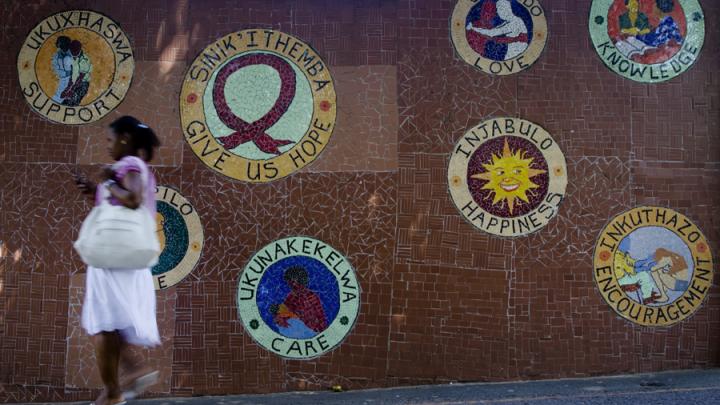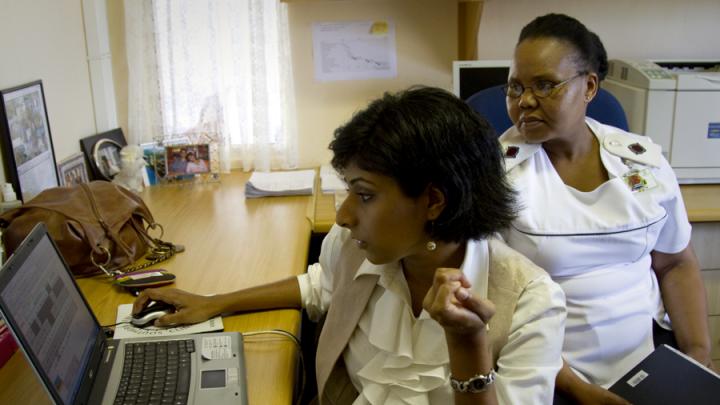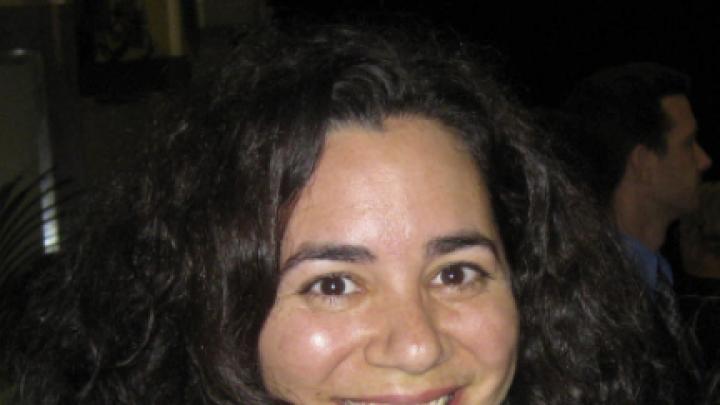When a patient is diagnosed with HIV, her first step is a follow-up test: a so-called CD4+ count, which measures the level of a key type of immune cell in her bloodstream, indicating whether she is still healthy or the virus has begun to overwhelm her immune system.
The result is crucial to any HIV patient’s treatment: it determines whether she needs antiretroviral therapy (ART). And yet, in many places the rate of follow-through from HIV test to CD4+ test is discouragingly low. When Ingrid Bassett ’95, M.D. ’00, M.P.H. ’07, began her research study at two hospitals in South Africa’s KwaZulu-Natal province, she found that two-thirds of the people who tested positive for HIV simply went home without the follow-up test—and 90 days later, still hadn’t gotten it.
Furthermore, among those who did undergo the CD4+ test, more than half had counts so low that they qualified immediately for ART—yet most eligible patients did not follow through to get the drugs, even though both hospitals had ready supplies.
This follow-through, or lack thereof, is the focus of Bassett’s research. Official statistics often focus on absolute numbers—the number of people tested for HIV, the number determined to be infected, the number who start treatment, the number who die—and these numbers can be challenging enough to gather. Calculations that follow people from one step to the next are practically nonexistent. Without such calculations, says Bassett, an instructor in medicine at Harvard Medical School (HMS) and an infectious-disease specialist at Massachusetts General Hospital (MGH), it’s hard to know how to improve the healthcare system to better meet patients’ needs. “There’s a series of things that need to happen before a person is sitting with a doctor getting a prescription written for antiretrovirals,” she says.
One of Bassett’s research sites, McCord Hospital in Durban, made progress by bringing that series of steps into closer proximity with each other. When Bassett began her work at McCord six years ago, patients were first seen by a physician in the outpatient department; then referred to a separate building for an HIV test and a CD4+ count. Since the hospital brought both types of tests into the outpatient department, two-thirds of people newly diagnosed with HIV go on to get the CD4+ test. Patients’ likelihood of getting the initial HIV test also increased: McCord went from making eight new diagnoses per week to making 39. Getting more people tested is a significant accomplishment, says Bassett: “A lot of patients are being diagnosed when they are already so sick that they die before they have a chance to take treatment. Early diagnosis is really critical.”
But even with services consolidated in one location, some patients still don’t get the recommended tests or treatment. “HIV just terrifies patients so much,” says Senica Chetty, the on-site project manager for Bassett’s research. Sometimes, she says, after getting a positive test at McCord, they retest someplace else. If the second result is negative, even though it may be false, “They grab onto it and hold it for all they’re worth. They are not willing to retest again.”
The next phase of Bassett's research at McCord, funded by the National Institutes of Health, investigates the effectiveness of “health system navigators”—counselors who contact patients repeatedly in the months following their diagnosis to answer questions, soothe fears, and remind patients what they should be doing for their own health. “When people initially get the diagnosis,” it can be overwhelming, says Bassett, who won a Young Investigator Award from the International AIDS Society last year for her research in South Africa. “They may not hear all the details.”
At McCord and other sites, the navigators will personally accompany newly diagnosed HIV patients to get their CD4+ count, conduct initial counseling, and accompany them to the HIV clinic where each patient meets with a physician and learns more about his or her treatment plan. They will call patients every four weeks, and send intermediate reminder text messages to check in. Bassett will measure whether, after nine months, the patients with navigators assigned to them are more likely than the patients without navigators to be taking their medications as prescribed; to have completed tuberculosis treatment (a complicating infection very common among people with HIV), if applicable; or—for those who did not yet qualify for ART upon diagnosis—to have had a follow-up CD4+ test.
Although the purpose of Bassett’s project is research, the work’s fundamentally human nature means it is never just research. “When we see a patient who is having trouble, and who we know could be helped, I think we are ethically obliged to help them,” says Bassett. In the earlier study, which followed patients to find out where they were dropping out of the healthcare system, the researchers found it nearly impossible not to form connections with their subjects. “We’ve had patients tell us they had a rope in their hand when we called,” says Chetty.
There are heartbreaking moments. Research assistant Lindeni Gertrude Sangweni once called a patient’s family just two hours after the patient had died in the hospital. The families of patients who died at McCord often wonder why the researchers don’t know that information. “We have to explain that we are in the research department,” says Sangweni. Another research assistant, Nompumelelo Matilda Mazibuko, displays a record book veritably stuffed with Post-It notes indicating patients who had died by the time of the follow-up phone call.
There are uplifting moments as well. One patient told Mazibuko his whole story over the phone. “There’s no one else who cares about me,” he said. His family had told him it was his own fault he’d gotten HIV, and he should take care of himself from now on. “You went to Durban to work, not to sleep around with the girls,” he said they told him. Mazibuko replied: “You must know that there is somebody out there, somebody who cares about you.” She talked to him again a few weeks later. He had started on ART and, she says, “I could hear hope in his voice.”
In Chetty’s previous job as a lab scientist, she had a hard time empathizing with the patients whose specimens she was analyzing. For example, she says, “when you have absolutely zero contact with patients, it’s difficult to understand what motivates an HIV-positive woman to have another child.” Now, in her work with Bassett, Chetty’s job involves following individual patients for months or years. There is no way to avoid seeing the human face of the disease.
The first few weeks on the job transformed Chetty’s attitudes, she recalls: “You learn that it isn’t just black and white. Every person has a story.” Early on, she recalls seeing a woman in the waiting room who reminded her of her own grandmother—the same laugh, the same smile, the same twinkle in her eye. When Chetty saw the woman leaving the clinic, that twinkle was gone. She learned later that the woman had tested positive. “You realize that it doesn’t matter how the person got infected. Nobody deserves to die that way.”










